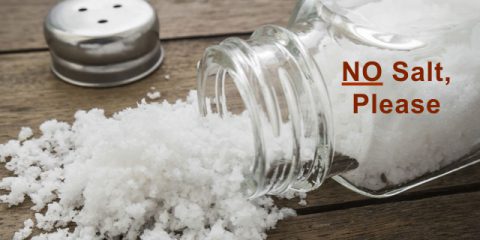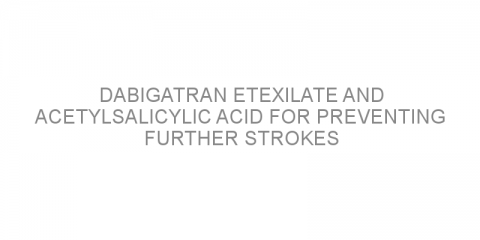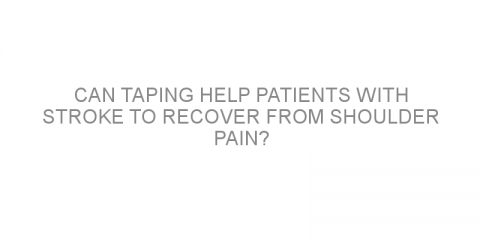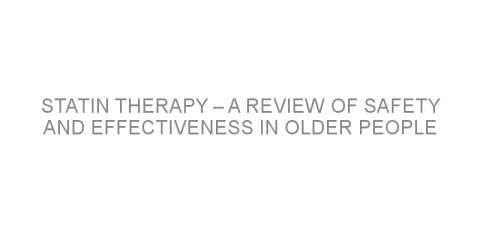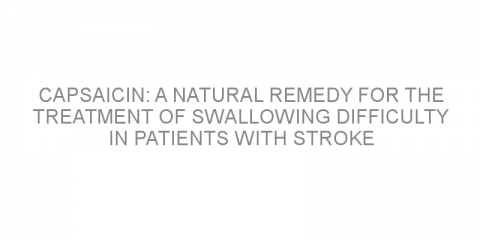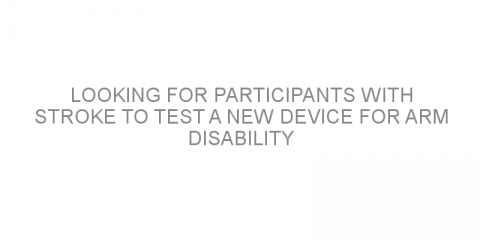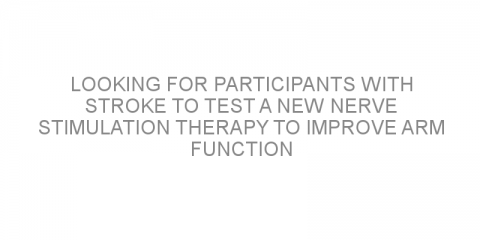In a nutshell This trial is examining the predictive factors for stroke recovery. The main outcomes to be measured will be the change in hand movements after the stroke. This study is being conducted in Baltimore, Maryland, US. The details During a stroke, brain cells die due to the limited blood flow to the brain. When this happens, the abilities...
Read MoreStroke Posts on Medivizor
High-frequency repetitive transcranial magnetic stimulation helps treating depression in stroke survivors
In a nutshell This study investigated the effectiveness and safety of high-frequency repetitive transcranial magnetic stimulation (HF-RTMS) to treat depression in patients with stroke. Researchers suggested that HF-RTMS improved depression in these patients. Some background A stroke occurs when blood flow to an area of the brain is cut off. When this...
Read MoreNo Salt, Please
A recent commentary in the New England Journal of Medicine describes what is really happening with the US food supply. In 2010, a report by the Institute of Medicine (IOM–now called the National Academy of Medicine) stated that, salt intake is actually a factor that is out of our personal control. This is because only 5% of sodium is coming from the...
Read MoreDabigatran etexilate and acetylsalicylic acid for preventing further strokes
In a nutshell This study compared the effectiveness and safety of dabigatran etexilate (Pradaxa) and acetylsalicylic acid (Aspirin) in patients with stroke. Researchers suggested that both drugs were similar in preventing further strokes in these patients. Some background A stroke occurs when the supply of blood to the brain is blocked by a blood...
Read MoreVirtual reality therapy improves balance in patients with stroke
In a nutshell This study compared virtual reality (VR) and standard treatment to treat patients with impaired balance after a stroke. Researchers suggested that VR combined with standard therapy improves balance in these patients. Some background Stroke is one of the leading causes of death in the US. A stroke occurs when blood flow to an area of the...
Read MoreLooking for patients with stroke to test new combined treatment for movement deficits
In a nutshell This trial is examining the effectiveness of robotic rehabilitation and transcranial direct current stimulation (TDCS) in patients with stroke. The main outcome to be measured is the change in proprioception (awareness of where our limbs are in space, in the absence of vision). This trial will be conducted in Alberta, Canada. The details...
Read MoreCan taping help patients with stroke to recover from shoulder pain?
In a nutshell This study investigated the effectiveness of taping (adhesive tape) in treating shoulder pain in patients with stroke. Researchers suggested that taping reduces shoulder pain in these patients. Some background A stroke occurs when blood flow to an area in the brain is cut off. Stroke survivors often experience one side paralysis...
Read MoreStatin therapy – a review of safety and effectiveness in older people
In a nutshell This study investigated the use of statins (a type of cholesterol-lowering drug) in older patients. They found that statins reduced the risk of major vascular events (MVEs) in all age groups. Some background Statins are a type of drug used in the treatment of cardiovascular disease (CVD). CVD is caused by blockages in the arteries....
Read MoreCapsaicin: a natural remedy for the treatment of swallowing difficulty in patients with stroke
In a nutshell This study investigated the use of natural capsaicin to treat dysphagia (problems in swallowing) in patients with stroke. Researchers suggested that the regular use of capsaicin could help in the recovery of swallow function in these patients. Some background As the population is aging rapidly, stroke has become one of the leading causes...
Read MoreIncobotulinumtoxin A in the treatment of excessive salivation in patients with neurological conditions
In a nutshell This study investigated the effectiveness and safety of incobotulinumtoxinA (IBTA) for the treatment of excessive salivation (sialorrhea) in patients with Parkinson's disease or stroke. Researchers suggested that IBTA might be a well-tolerated option for the treatment of these patients. Some background Sialorrhea (excessive...
Read MoreLooking for participants with stroke to test a new device for arm disability
In a nutshell This trial is examining the effectiveness of a home-based device called myoelectric-computer interface (MCI), in the treatment of arm disability in patients with stroke. The main outcome will be the change in arm movement before and after the treatment. This trial will be conducted in Illinois, US. The details Stroke is a leading cause...
Read MoreLooking for participants with stroke to test a new nerve stimulation therapy to improve arm function
In a nutshell This trial is examining the effectiveness of transcutaneous vagus nerve stimulation (TVNS) and robotic training to treat arm disability after stroke. The main outcome to be measured will be the change in muscle activity before and after treatment. This study is being conducted in New York, United States. The details Often patients...
Read More


